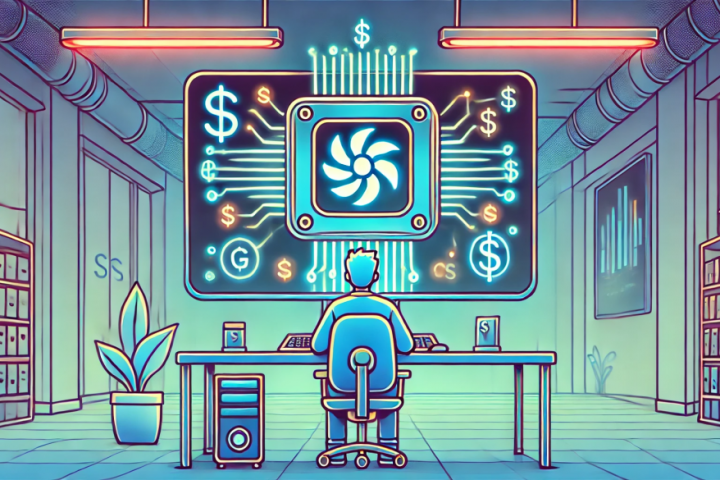Stay ahead of the curve with our daily and weekly newsletters. Get the latest updates and exclusive insights on AI industry trends. Discover More
LinkedIn co-founder and renowned tech investor, Reid Hoffman, painted a hopeful picture of artificial intelligence on Tuesday. He introduced his concept of “super agency,” portraying AI as a tool for human empowerment rather than a threat to human jobs.
During a fireside chat with CNBC’s Julia Boorstin at a TED AI conference in San Francisco, Hoffman gave a sneak peek into his upcoming book on super agency. He positioned AI as the next big leap in enhancing human capabilities.
“Looking back at the history of technology, it has always amplified human agency,” Hoffman stated. “Each major technological leap has given us superpowers.” He drew an analogy between historical innovations like horses and automobiles and today’s AI systems, which he described as “cognitive superpowers.”
AI election risks and regulation: Silicon Valley leader counters concerns
Hoffman’s message seems strategically timed, given the rising concerns about AI’s impact on jobs and democracy. While acknowledging worries about job displacement and election misinformation, Hoffman asserted that these transition challenges can be managed.
On the topic of election integrity, Hoffman downplayed the immediate risks posed by AI-generated deepfakes in the 2024 race. However, he did acknowledge potential future concerns. “Undoubtedly, AI is being used for crime and misinformation… but its impact is not yet significant,” he said, suggesting technical solutions like “encryption timestamps” could help authenticate content.
Hoffman also defended California Governor Gavin Newsom’s recent veto of sweeping AI regulation. He praised the White House’s approach of seeking voluntary commitments from tech companies before implementing specific rules. “Having vague, uncertain penalties and evaluations is an effective way to stifle the future development of emerging technology,” he argued.
Enterprise AI opportunities: The playing field where startups can still compete with big tech
For enterprise leaders keeping an eye on AI developments, Hoffman emphasized that despite the dominance of large tech companies in developing foundation models, there are still opportunities for startups building applications on top of them. “There’s a massive amount of AI now,” he said, highlighting areas like sales, marketing, and computer security as fertile ground for innovation.
Interestingly, Hoffman envisioned AI democratizing access to expertise. He described a future where everyone with a phone could access “the equivalent of a GP everywhere in the world.” This vision aligns with the growing enterprise interest in AI assistants and automated customer service solutions.
Silicon Valley’s political divide: Tech leaders at odds over AI policy and regulation
The conversation revealed underlying tensions in Silicon Valley’s political landscape. Hoffman addressed what Boorstin described as a rightward shift among tech leaders. The discussion took a sharp turn when Hoffman seemed to criticize fellow tech leader Elon Musk’s support of Trump, without naming him directly.
Discussing the rightward shift among tech leaders, Hoffman questioned the motives of “some people who are out there campaigning and spreading pretty wild conspiracy theories… not just on x.com but in other places.”
He suggested such support might be driven by “self-interested” pursuits like “securing government contracts,” rather than genuine policy convictions. The veiled reference to Musk, who has pledged millions to Trump’s campaign and frequently posts pro-Trump content on his X platform, underscores the growing divisions among Silicon Valley’s elite over the upcoming election.
Hoffman, a prominent Democratic supporter and backer of Vice President Kamala Harris, attributed some of the broader rightward movement to “single issue voters around cryptocurrency” and business interests seeking favorable regulation. He emphasized that a “stable business environment to invest in is much more important” than pursuing narrow interests like corporate tax cuts.
Future of work and the next chapter of AI
Hoffman’s vision suggests a fundamental shift in how we should perceive AI adoption. While much of Silicon Valley views artificial intelligence as a replacement for human work, his “super agency” concept positions it as a tool to amplify human potential.
“Humans not using AI will be replaced by humans using AI,” Hoffman predicted, arguing that the real divide won’t be between humans and machines, but between those who embrace AI’s capabilities and those who don’t.
The implications of this transition extend far beyond Silicon Valley. As AI capabilities expand, Hoffman’s optimistic vision will be put to the test against growing concerns about job displacement and technological control. But his core message is clear: the future belongs to those who don’t resist AI, but to those who learn to harness it as a tool for human empowerment—even if that means fundamentally rethinking what it means to be human in an AI-enabled world.







